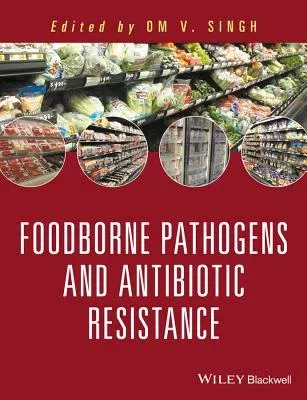Food is an essential means for humans and other animals to acquire the
necessary elements needed for survival. However, it is also a transport
vehicle for foodborne pathogens, which can pose great threats to human
health. Use of antibiotics has been enhanced in the human health system;
however, selective pressure among bacteria allows the development for
antibiotic resistance.
Foodborne Pathogens and Antibiotic Resistance bridges technological
gaps, focusing on critical aspects of foodborne pathogen detection and
mechanisms regulating antibiotic resistance that are relevant to human
health and foodborne illnesses
This groundbreaking guide:
- Introduces the microbial presence on variety of food items for human
and animal consumption.
- Provides the detection strategies to screen and identify the variety
of food pathogens in addition to reviews the literature.
- Provides microbial molecular mechanism of food spoilage along with
molecular mechanism of microorganisms acquiring antibiotic resistance in
food.
- Discusses systems biology of food borne pathogens in terms of
detection and food spoilage.
- Discusses FDA's regulations and Hazard Analysis and Critical Control
Point (HACCP) towards challenges and possibilities of developing global
food safety.
Foodborne Pathogens and Antibiotic Resistance is an immensely useful
resource for graduate students and researchers in the food science, food
microbiology, microbiology, and industrial biotechnology.

